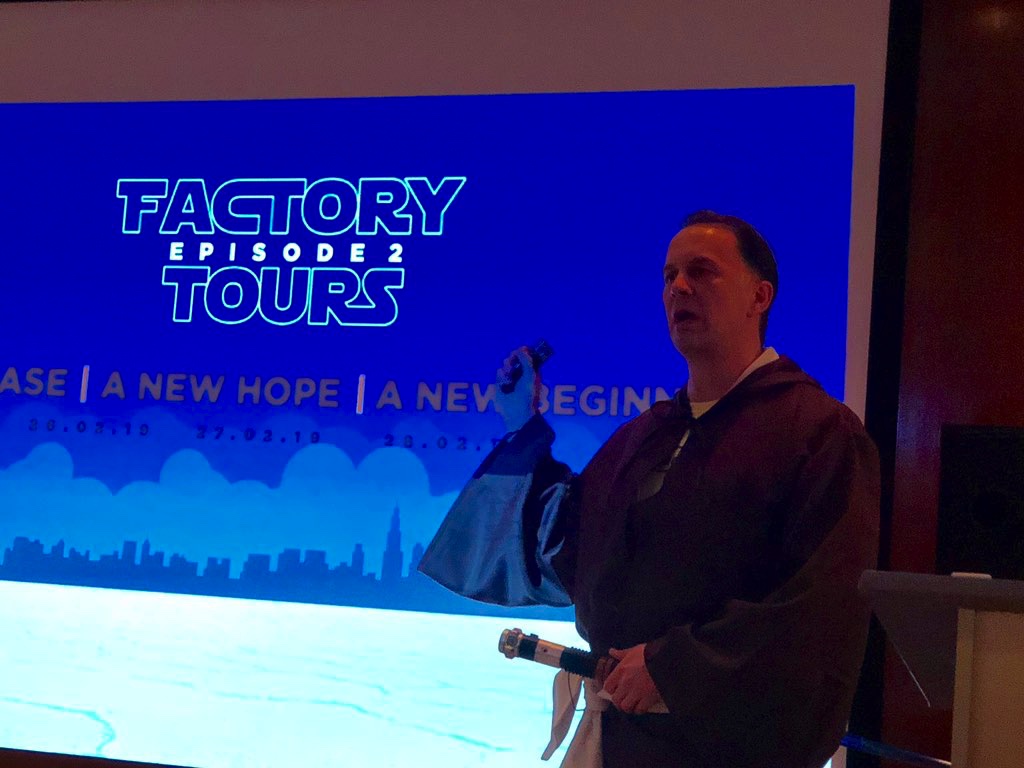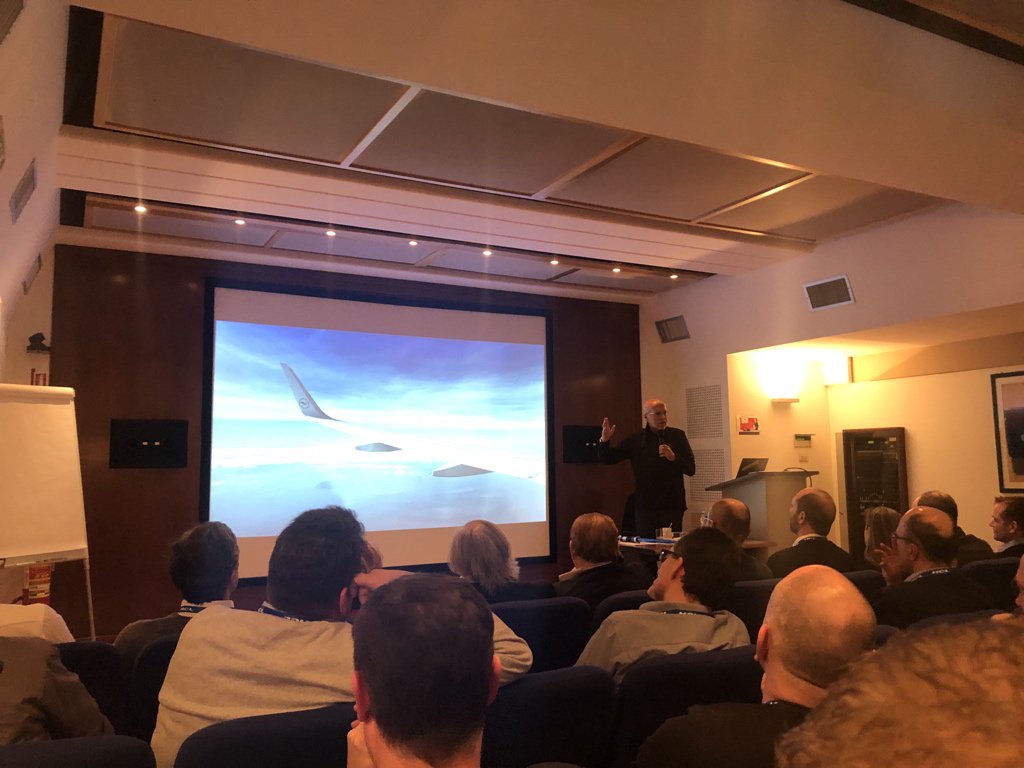The HCL Team, lead by Richard Jefts, was kind enough to invite me to its second Factory Tour, this time in Europe, in the HCL offices in Milan, in Italy. Milan is just a 3.5 hour trip in the train from Zürich, going through the new Gotthard tunnel, so it was an almost leisurely travel, compared to the trip to Boston last year.

There were 140 attendees, the majority coming from German-speaking countries.
We were treated to a wonderful evening, discovering the sights of Milano, and being invited to the Grand Hotel to eat delicious Italian food. Most of my table asked for a second serving of risotto!
Here are my take-home points:
Better Builds
HCL is modernising the build processes. The aim is to have consistent builds where all the software gets simultaneously built and released. In particular, we’re seeing simultaneous builds for the clients (i.e. Mac and Windows at the same time) and for the products (Domino, Notes, Sametime). It’s a most welcome development.
The last release of Domino saw some quality issues with the Language packs. Kudos to HCL’s Russ Holden for acknowledging the quality issue and dealing with it. Building language packs was, in the past, done by a completely independent department, almost as an afterthought. It turned out that the internationalisation process was not completely automated and needed some laborious manual adjustments. The upside of this is that now that the issue has been surfaced, the core Domino Team will be doing the internationalisation internally, automatically, which means that the next releases will see the language packs being simultaneously released with the main build. This is excellent news for European customers whose software won’t be second-class citizens anymore.
Better Processes
HCL is intent on having a closer relationship with its customers and its business partners, and we were shown many improvements that made me, as a small business partner, smile with barely concealed excitement.
The processes that are being now replaced were unwieldy and frustrating. These were tailored for large enterprises and not to small, nimble companies, and it’s very rewarding to see how HCL is revamping this:
Better support:
We’ve been treated to exceptionally fast support over the past year coming from HCL. The presence on Twitter is remarkable, and the speed with which issues are cleared is a real relief, and a real surprise compared to the previous, glacial pace. Kudos to Michael Fiorentino for the sterling work here.
Previously, business partners were not able to register issues and bugs directly, this will now change.
Better interaction with the customers:
HCL introduced their customer advocacy program, which will give you as a customer direct access to someone within the development team. This is such a good idea.
If you are a customer, register yourself on:
https://www.cwpcollaboration.com/advocacy.html
Closer relationship with the business partners
Speaking as a small provider, IBM’s process for obtaining licenses was so complicated, slow and heavy that it was not commercially viable to resell licenses, or to bundle services with installations. HCL’s processes are far more direct and the licensing model for new licenses will be far simpler. This opens opportunities for SMB clients (and the smaller, local providers which these favour).
If you are a business partner, be sure to register on:
http://www.hclpartnerconnect.com
Better Software
HCL Nomad (Notes Apps on Tablets)
We were shown a very polished, very quick demo of HCL Nomad (a Notes Client working within a tablet) on an Android device. The delicious side-effect of porting the code to Android is that HCL used OpenGL, which means that the codebase can be compiled as WebGL, which means it can be compiled for browsers! Yay.
There is still some work to be done as to the distribution mechanism, but I would say this is coming close to a shipping date.
Verse on Premise
Verse is also getting a makeover, including a much-expected revamp of the calendar view.
Better clarity on the future of the clients.
I was confused about was how to square backwards compatibility with a smaller, quicker client. As far as I have understood (the following here are my opinions):
The thick client based on Eclipse is going to stay on with minimal improvements so as to ensure backwards compatibility for customers that depend on the full range of the thick client’s capabilities.
HCL Places is still a work in progress and will include some Low-Code options, apparently with an engine based on Node-Red. This seems to imply that HCL Places will try to integrate into cloud-based solutions with microservices.
The new kid on the block (for me) was the upcoming lightweight client. As I’ve understood, this will integrate the HCL Nomad code for interacting with applications, and Verse for the Mail experience. This is reassuring, both components seem well on their way and conceptually seems something which will be relatively straightforward to implement.
Search and DQL – security model will be seamless
The security model of Notes is the single biggest advantage the platform has over all others. As a developer, not having to worry about who has access to what data, once this has been determined on the record/document level, gives me great speed in development.
The demos we saw of DQL and of searching with Elastic Search were using Anonymous access. I was worried that we would lose our edge if the security model was not respected at a low-level, but HCL assured us that they are very aware of this. I’m hoping that the next demonstrations will include authorization and authentication.
Focus on application development.

We had a surprise final keynote delivered by Volker Weber of vowe.net fame. I was delighted to see that Volker’s skills in stripping down things to the essentials was reflected in his presentation’s format – a series of pictures with no text, and the presentation’s content – which was to recognise that the core feature of Domino is cheap, robust app development. I couldn’t agree more, and I’m convinced that HCL agrees wholeheartedly too.
These are exciting times ahead for our community.
